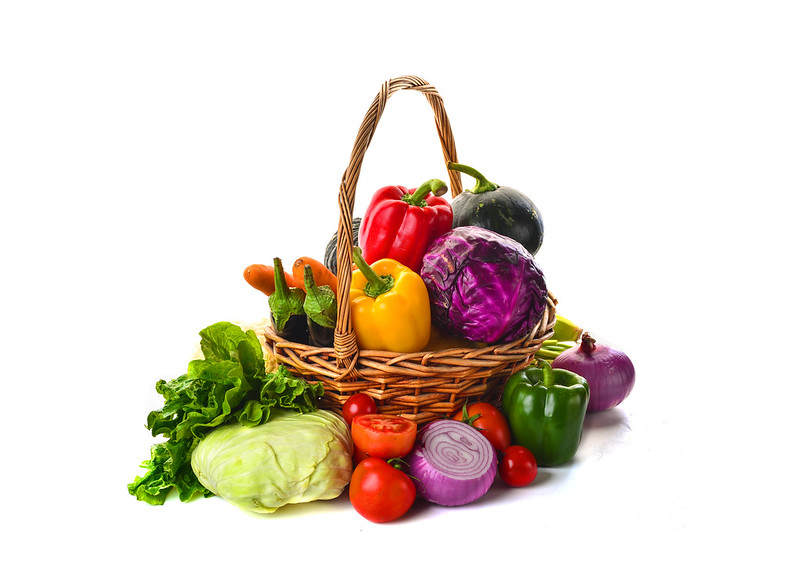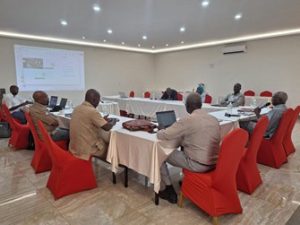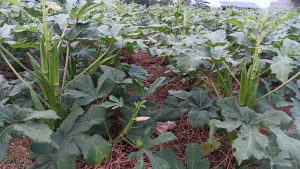Djibouti: TAAT facilitates access to sustainable seed systems for vegetables

About 180,000 pastoralists and farmers in Djibouti are set to access innovative agricultural technologies and practices that can boost the country’s efforts to attain food self-sufficiency.
The Technologies for Agricultural Transformation in Africa (TAAT) programme is facilitating access to these technologies, including improved vegetable crop varieties suited to local conditions and the development of a national seed system. These activities are all under the framework of the Program to Build Resilience for Food and Nutrition Security (BREFONS) framework.
TAAT, through its Vegetable Compact led by the World Vegetable Center, is collaborating with Djibouti’s Ministry of Agriculture, Water, Fisheries, and Livestock alongside national institutions like the Life Sciences Institute of Djibouti Centre for Studies and Research (ISV-CERD) and the Directorate of Agriculture and Forestry (DAF), to support the development of country’s vegetable sector.
This support, which includes capacity building for seed producers and executives from DAF and CERD in seed production and inspection, materialized recently through a capacity-building session in production and seed inspection held in Djibouti from April 14 to 19, 2024.
The objectives included enhancing the quality of seed production, strengthening seed inspection and certification capabilities among relevant officials, and discussing varietal trials with pertinent stakeholders. Participants at the workshop were drawn from seed companies and Producers from various regions of Djibouti.
A team of experts led by Dr Mathieu Ayenan, the TAAT Vegetable Compact Leader, trained participants using four modules. These modules included seed production techniques for tomato, pepper, okra, and onion, seed concepts, varieties, the interdependence of seed production activities, characteristics of vegetable crops and their seeds, and the diversity of crop species and families.
Other aspects covered include detailed technical aspects of vegetable seed production, administrative procedures and technical standards, production itineraries for tomato, pepper, okra, and onion seeds, highlighting specific considerations for each crop, seed harvesting, post-harvest operations, and the procedures for extracting seeds from various vegetable crops based on their type and fruit form.
Participants were further grilled on seed quality assurance, emphasising the importance of inspection, certification, and participants’ roles as potential seed multipliers in meeting inspection requirements.
Discussions with participants provided insight into current practices, enabling tailored guidance on optimal seed production techniques. This segment garnered significant interest from participants due to the delicate nature of the operations involved, which directly impact the quality, packaging, and marketing of seeds.
Participants were given printed training modules to enhance their practices and train fellow vegetable crop producers to become seed multipliers, equipping them with the necessary tools to implement seed production best practices in their respective regions.
The participants then embarked on a field visit to the ISV site in Doudoubalala, where tomato, okra, and onion seeds are multiplied. They gained practical experience in seed production techniques, including identifying plant structures, managing isolation distances, and recognizing off-types.
They also observed seed analysis equipment at the ISV agronomy laboratory. Dr. Sougueh Cheik highlighted ISV’s past successes with WorldVeg and Seed Systems Group, laying a foundation for future collaborations under the BREFONS Programme.
Following the laboratory visit, the training shifted to seed inspection and certification, tailored for DAF executives and CERD. The presentation of Benin’s General Technical Regulations and Annexed Technical Regulations showcased the advancements in their seed system, offering insights for Djibouti’s development.
The team further led sessions on the complexity of certification and detailing regulations from the COMESA and ECOWAS areas. A comparative analysis was conducted between the two regions.
The TAAT team proposed a vegetable certification manual delineating stakeholders’ roles and inviting feedback for refinement. All participants, including ISV and DAF, committed to contributing their expertise to enhance the document and ensure its effectiveness in advancing Djibouti’s vegetable seed system.
Key accomplishments for the TAAT-sponsored mission to Djibouti include capacity-strengthening in vegetable seed production for seed producers, Managers and Ministry Officials, improved clarity on resource allocation, and the initiation of varietal trials. Recommendations include sustaining capacity-building efforts, facilitating access to seeds, and finalizing the certification manual.
In a brief remark, Mr Mohamed Abdillahi Hassan from the Project Implementation Unit commended the TAAT team for delivering a training session that was crucial to the project’s objectives. Mr Abdilahi said the Djibouti government is increasingly prioritising local food production to reduce its dependency on imports. However, there is currently no local seed production, hence the need for this intervention by TAAT.
Dr Ayenan, the TAAT Vegetable Compact Leader, expressed confidence that the intervention would be effective in establishing Djibouti’s crop seed system and increasing crop productivity.
“Moving forward, ISV will conduct varietal trials starting September 2024, with support from the TAAT team in organizing field days. Agreements between ISV, DAF, and CEP will enable streamlined activities, including the return of additional seeds for retrials,” Dr Ayenan added.
Building Resilience in the Horn of Africa
The Program to Build Resilience for Food and Nutrition Security in The Horn of Africa (BREFONS), established by the African Development Bank, represents an investment of $138 million to build resilience against food and nutrition insecurity of 3 million pastoralists in the face of climate change in the Horn of Africa region. BREFONS covers four (4) countries: Djibouti, Kenya, Somalia, and South Sudan, with Ethiopia and Sudan.
BREFONS seeks to increase agricultural (crops and livestock) production to up to 30%; increase annual income per capita by about 30%; facilitate access to TAAT innovative technologies and practices for 180,000 pastoralists and farmers; and reach 450,000 pastoralists and farmers with digital advisory services. Other objectives include creating 35,000 additional jobs for youth and women; increasing the number of farmers and pastoralists using climate services e.g., index-based insurance, with a gender focus to 800,000 people; and periodic monitoring and reporting of the state of resilience at the national and regional levels.
The programme’s beneficiaries include populations in the Horn of Africa affected by climate change, including increased temperatures, high rainfall variability, and intense flooding, each of which have serious socioeconomic consequences. The programme’s approach is to deploy an integrated suite of interventions to build resilience to climate change in these populations and improve food and nutrition security. Priority is given to areas in the IGAD cross-border clusters and economic corridors
Recent Stories
Related Stories
- GHANA: TAAT Engages Stakeholders on Innovation Platform Model
- Benin: TAAT Showcases Improved Okra Varieties
- Jigawa State Delegation explores scale-up Opportunities with TAAT
- Ghana: How TAAT is Growing Nutrition and Opportunities through Improved Vegetables
- TAAT-vetted Vegetable Varieties Double Ghana’s Tomato Yields to 20 Tons Per Hectare





